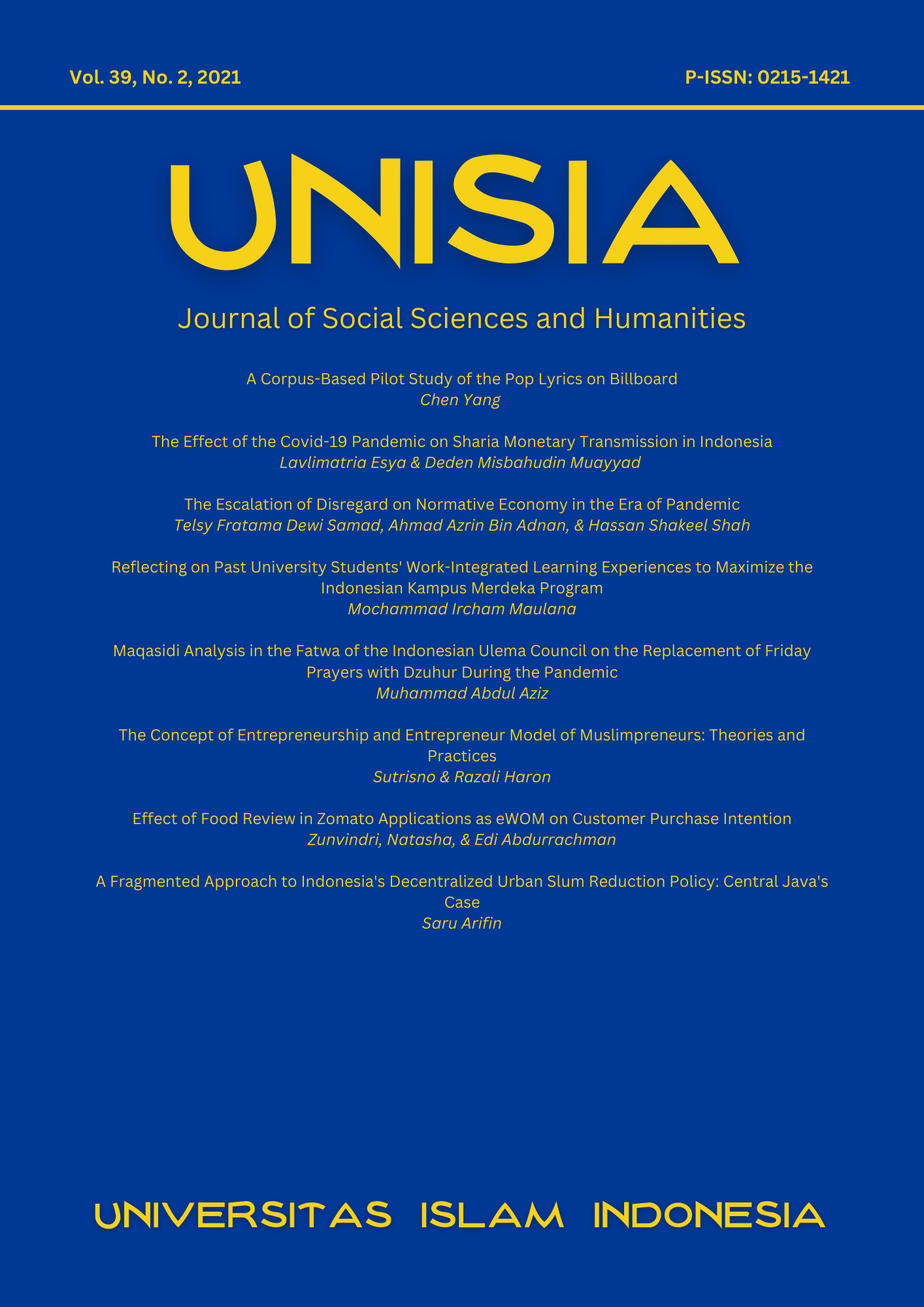Main Article Content
Abstract
The Covid-19 Pandemic limitations affected religion and soul in the community. This included prayer decisions such as, a Muslim observing the Friday prayer in a red zone during the pandemic chose religion, while one who conducts Dzuhur chose the soul. Therefore, this study used the analytical-descriptive method to explain the maqasid al-shari'ah perspective in the Indonesian Ulema Council (MUI) fatwas on the permissibility of replacing Friday prayers with Dzuhur during the pandemic. The results showed that this replacement contradicted the maqasid-masalih concept which views them as inseparable entities. It was against the comprehensiveness (shumuliyyah) principle as the main characteristic of maqasid al-shariah. This is because they lacked elasticity (murunah) which is religion main goal (al-daruriyyat al-khams). The issued MUI fatwas followed the maqasid al-shariah as comprehensive, dynamic, and elastic.
Keywords
Article Details
- Authors retain copyright and grant the journal right of first publication with the work simultaneously licensed under a Creative Commons Attribution License that allows others to share the work with an acknowledgement of the work's authorship and initial publication in this journal.
- Authors are able to enter into separate, additional contractual arrangements for the non-exclusive distribution of the journal's published version of the work (e.g., post it to an institutional repository or publish it in a book), with an acknowledgement of its initial publication in this journal.
- Authors are permitted and encouraged to post their work online (e.g., in institutional repositories or on their website) prior to and during the submission process, as it can lead to productive exchanges, as well as earlier and greater citation of published work.





